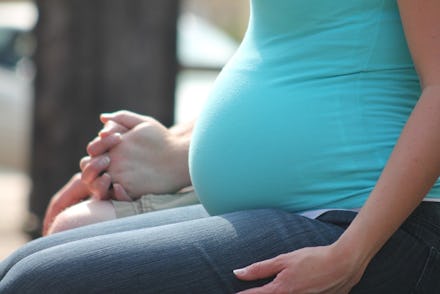These Chicago Teachers Scored a Major Victory Against Pregnancy Discrimination

It's been 37 years since the passage of the Pregnancy Discrimination Act, which ruled that "discrimination on the basis of pregnancy, childbirth or related medical conditions constitutes unlawful sex discrimination," according to the Equal Employment Opportunity Commission. Yet this type of discrimination still persists, as eight Chicago public school teachers found firsthand when they were fired for reasons related to their pregnancies. On Wednesday, however, the U.S. Department of Justice took a major stand against this unacceptable behavior and awarded the teachers a combined $280,000 in back pay and damages, the Columbus Dispatch reported.
The case. The eight Scammon Elementary School teachers behind the suit claimed that from 2009 to 2012, the school's principal gave female teachers lower performance evaluations than they had previously received after learning they were pregnant, efforts were made to fire the teachers, and overall "there existed a regular, purposeful, and less-favorable treatment of teachers because of their sex (pregnancies)," the Chicago Tribune reported the lawsuit stated.
In addition to paying the teachers' damages, the Justice Department ruled that the school board must also submit quarterly reports listing "every complaint of discrimination or harassment related to pregnancy, and every related complaint of retaliation" made by school employees, according the Chicago Tribune.
"Our settlement establishes critical measures to provide a workplace environment free from sex-based discrimination," Vanita Gupta, head of the Justice Department's Civil Rights Division, said according to the same report.
A widespread problem. While plenty of women are speaking out about their choice not to have kids, 75% of the 68 million women working in the United States will become pregnant at some point in their lives, according to the American Association of University Women. Yet far too many of them still routinely face discrimination related to this experience: More than 5,000 pregnancy discrimination charges were filed with the Equal Employment Opportunity Commission in 2013, Fortune reported last year, and countless more instances likely went unreported.
"It still is the case that too many people think that pregnancy and motherhood are incompatible with work," Emily Martin, vice president and general counsel of the National Women's Law Center, told Fortune in 2014.
Hopefully, this victory will do much to counter this misconception once and for all.
h/t the Columbus Dispatch